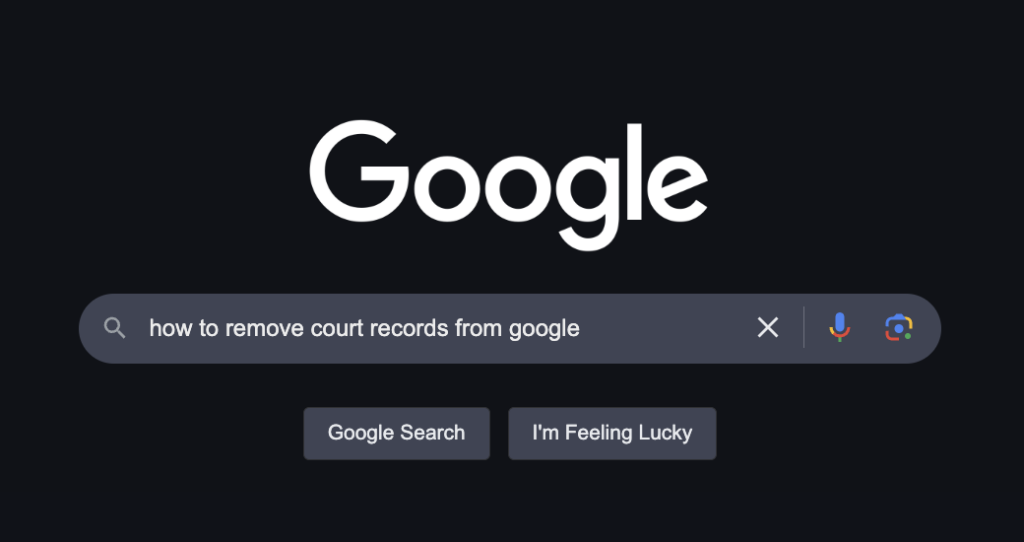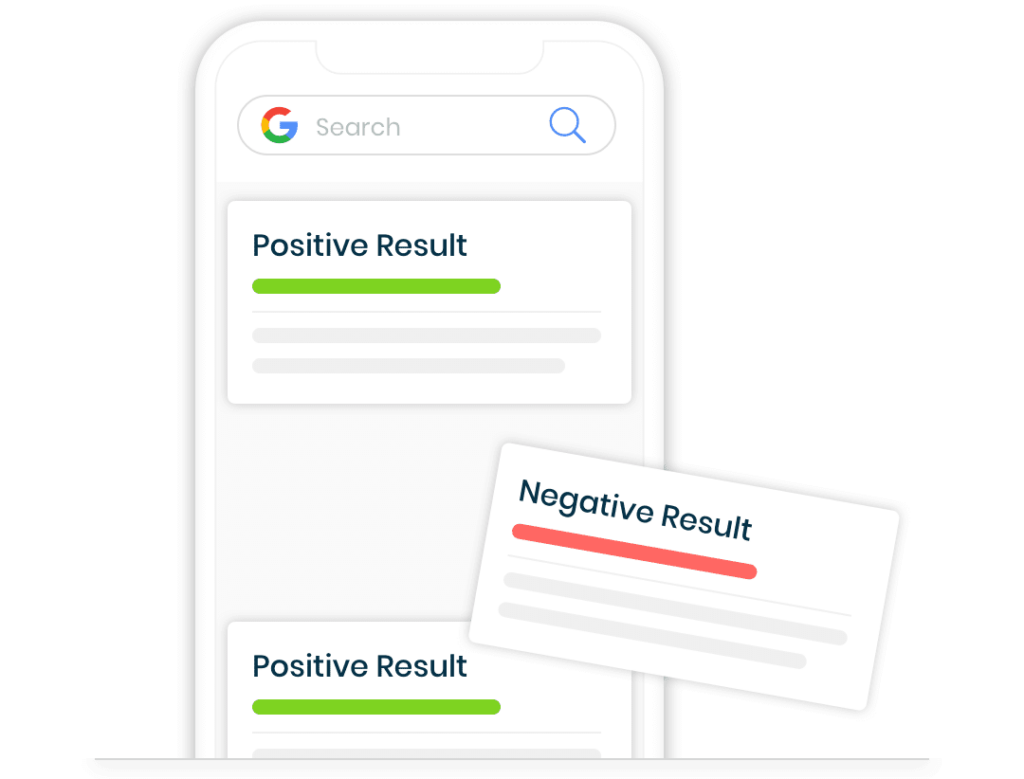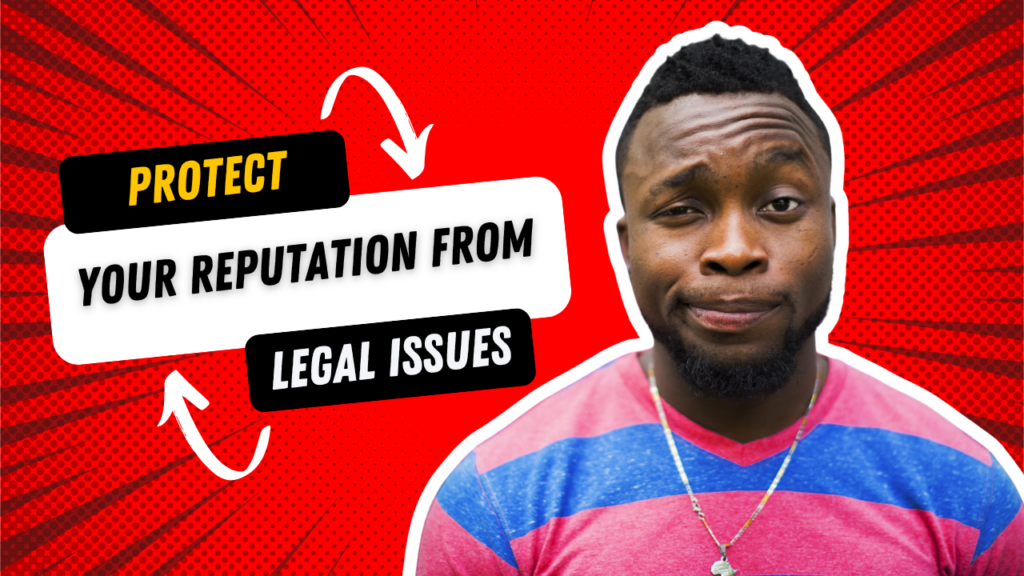Whether it’s a dismissed lawsuit, an old arrest, or a resolved civil case, past legal records can linger online and create long-term damage to your personal or professional reputation. Even if you were never convicted or the issue was resolved, the internet doesn’t always tell the full story—and Google certainly won’t explain the context.
So how do you protect your reputation when your name is tied to public legal records? Here’s a clear, actionable guide to take control of your digital image—plus a few real-world examples that show why it’s so important.
Dig Deeper: How to Remove Court Records from Google Search
Step 1: Know What’s Out There
Start with a Google search of your name. Do this in incognito mode and try different variations (with and without middle name, city, profession).
What to look for:
- Court records from government sites
- Mentions on news websites or press releases
- Background check databases or mugshot sites
- Archived legal filings (PACER, Justia, etc.)
This gives you a clear idea of what others see when they look you up. You can’t fix what you can’t find.

Step 2: Remove or Suppress Legal Records
Option A: Remove the Content
Some websites will remove legal records, especially if they’re outdated, inaccurate, or if you have proof the case was dismissed or expunged.
- Contact the source site (e.g., county court site, third-party record database)
- Provide legal documentation like expungement orders or court dismissals
- Use Google’s removal tool for pages that expose sensitive personal info
Important: Government court sites are usually the hardest to remove content from—but many third-party sites will comply with a formal request.
Option B: Suppress the Content
If removal isn’t an option, push the court records down in Google results using search engine suppression.
- Build a personal website using your full name
- Optimize your LinkedIn, Twitter, and other professional profiles
- Publish positive blog content, articles, or guest posts
- Get news mentions, press releases, or awards featured on other websites
The goal is to flood the first page of Google with positive, high-authority content so negative links are buried beyond page one.

Step 3: Secure Future Mentions
Set up Google Alerts for your name, business name, and any aliases. This helps you monitor new mentions so you can act fast.
Also:
- Claim your profiles on review sites and business directories
- Regularly update your social media and personal content
- Avoid unnecessary legal disputes that could become public
Step 4: Get Legal Support (When Needed)
If the content is defamatory, false, or violates privacy laws, consult an attorney. In some cases, a legal takedown request can be issued to the site or hosting provider.
Some legal options include:
- Cease and desist letters
- Court-issued injunctions
- DMCA or privacy-based removal requests
This route works best when the content is misleading or published with harmful intent.
Step 5: Work With a Reputation Management Partner
Managing your reputation is time-consuming and often complicated. Working with a professional service can save you time, stress, and ensure you’re using the most effective strategy.
A quality firm can:
- Remove or suppress legal records
- Build a full digital reputation strategy
- Help repair trust with customers, partners, or employers
Real-Life Examples & Lessons1ned fro failure and how he turned things around—shifting the narrative from risk to resilience.
Real-Life Examples and Lessons
1. Dame Ann Gloag and False Allegations
Dame Ann Gloag, co-founder of Stagecoach, faced unfounded human trafficking allegations that were widely publicized. Despite the charges being dropped, she reported that her reputation suffered irreparable harm, illustrating how false legal accusations can have lasting impacts. Latest news & breaking headlines
Lesson: Swift legal action and public statements addressing the false allegations are essential to mitigate reputational damage.

2. Rudy Giuliani’s Disbarment
Former New York City Mayor Rudy Giuliani was disbarred due to his attempts to overturn the 2020 presidential election results. This legal action led to significant reputational harm, overshadowing his prior accomplishments. People.com
Lesson: Engaging in unethical legal practices can lead to severe professional and reputational consequences.
3. Chris Brown’s Legal Troubles
Singer Chris Brown’s numerous legal issues, including assault charges, have continually affected his public image and career. Despite his talent, his reputation has been marred by his legal history. EW.com
Lesson: Repeated legal problems can have a cumulative negative effect on one’s reputation, emphasizing the importance of lawful behavior.
4. Neville Taylor’s Company Directorship Ban
Neville Taylor, involved with over 400 companies, was banned from running companies for nine years due to his role in subverting the insolvency system. This legal action severely damaged his professional reputation. Latest news & breaking headlines
Lesson: Engaging in unethical business practices can lead to legal repercussions and long-term reputational harm.
By proactively managing your online presence and addressing past legal records, you can protect and enhance your reputation, minimizing potential negative impacts on your personal and professional life.
Final Thoughts
Past legal records don’t have to define your future—but they can seriously hurt your reputation if left unchecked. By removing what you can, suppressing what you can’t, and building a strong personal or brand presence, you can rewrite the story people find online.
Need help cleaning up court records or protecting your reputation? Top Shelf Reputation specializes in removing legal content and rebuilding trust. Reach out today to take control of your online narrative.

